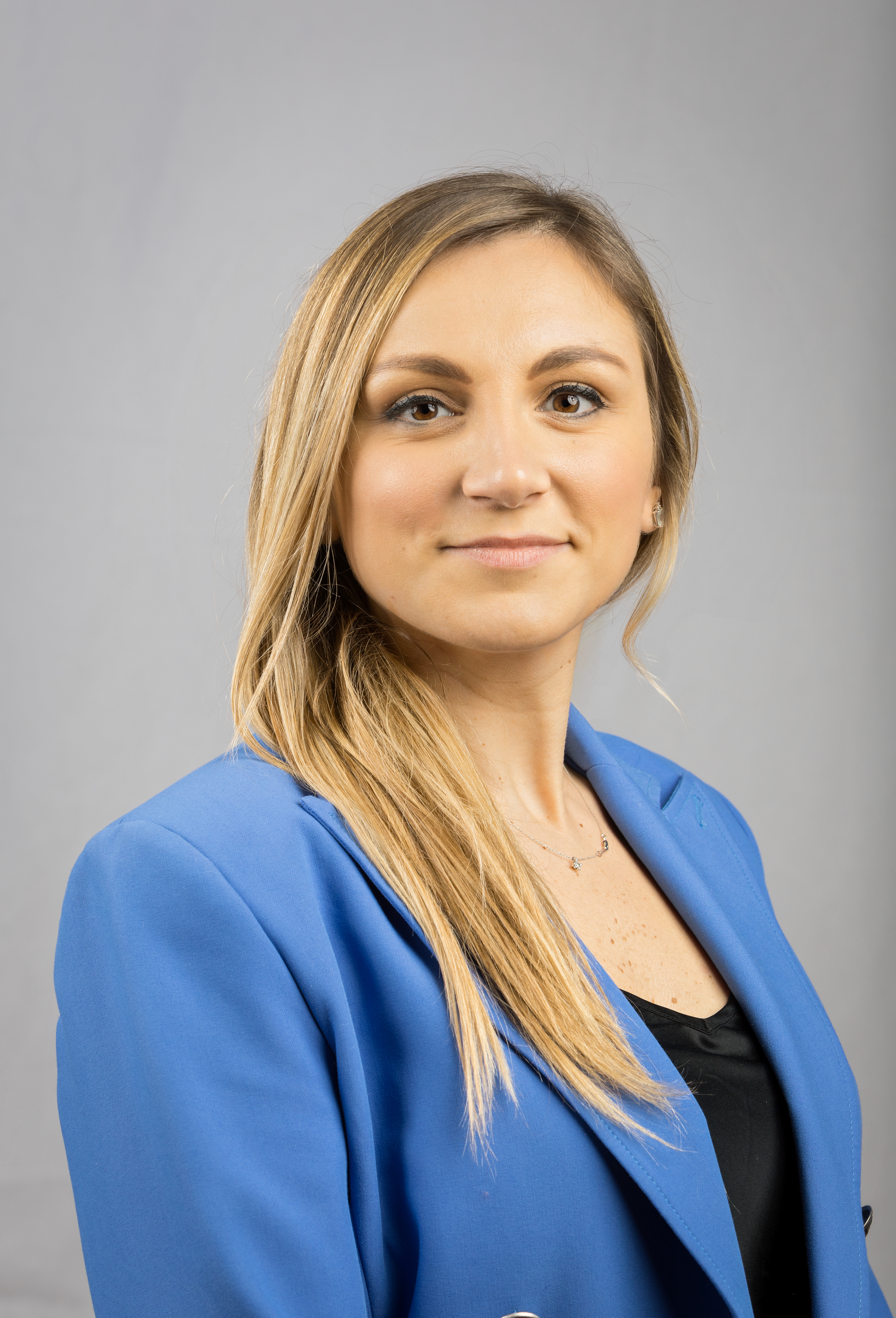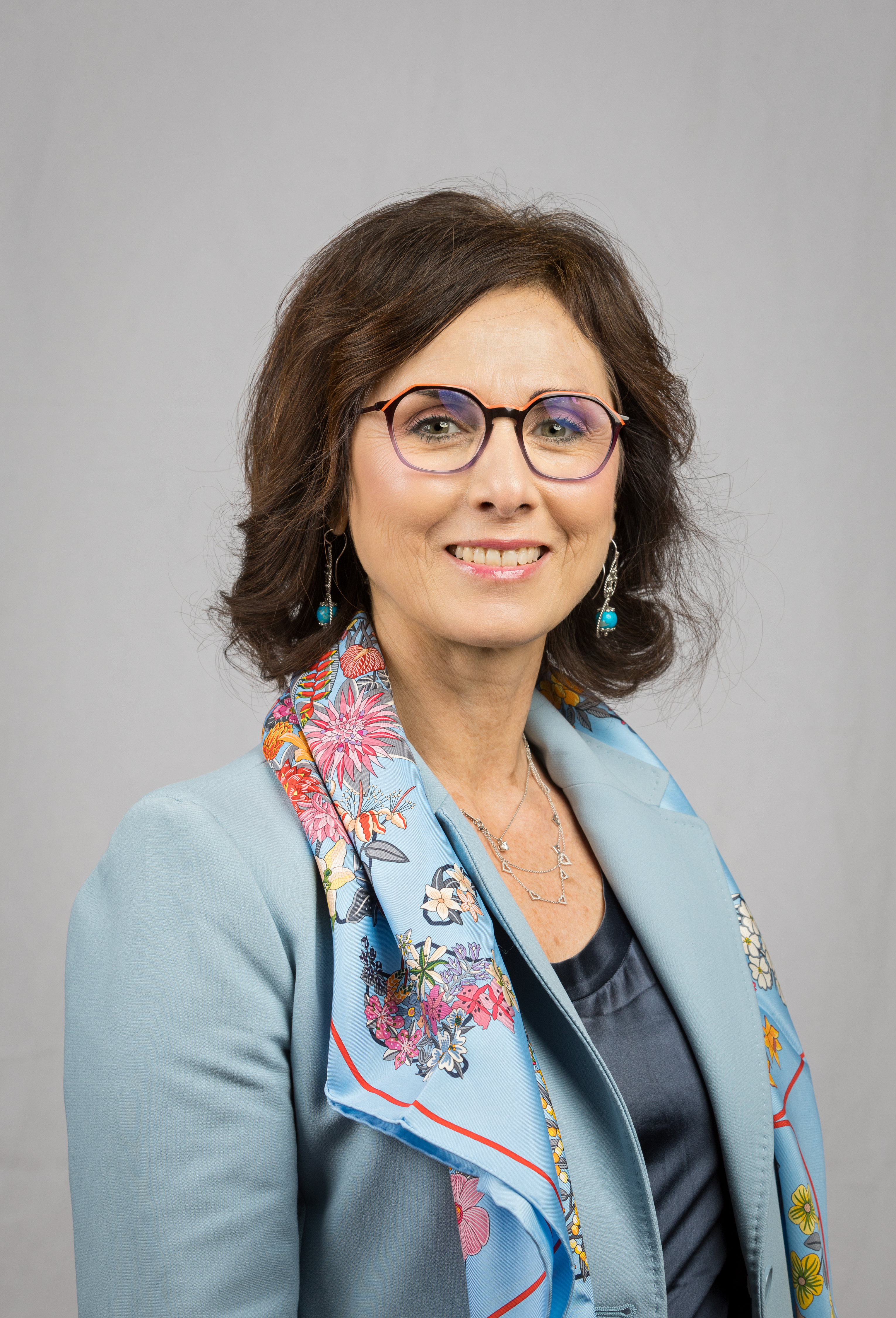Interview with new ECCO Scientific Officer: Marietta Iacucci
Brigida Barberio, ECCO News Associate Editor
 Brigida Barberio Brigida Barberio© ECCO |
We are pleased to introduce you to ECCO’s new Scientific Officer, Marietta Iacucci. Marietta is Professor of Gastroenterology at University College Cork and Consultant Gastroenterologist MUH/CUH. Marietta has been a very active member at ECCO for many years and is a main pillar in the e-learning taskforce. She is a Key opinion leader in Endoscopy and future technology in the field of IBD.
What have been the key moments of your career?
I was fortunate and fascinated to work with mentors who were experts in the field of IBD and advanced imaging technologies in Germany, the United Kingdom and Japan. Under the mentorship of Professor Subrata Ghosh at Imperial College, London, I honed my skills in IBD management and precision medicine. Professor Ralf Kiesslich from Mainz, Germany and Professors Saito, Yahagi and others in Japan were key to developing in me a keen interest in optical diagnosis and minimally invasive organ-sparing endoscopic resection techniques.
Calgary was the cornerstone of my career. There, as Associate Professor, I developed a state-of-the-art advanced imaging endoscopy platform and led one of the first randomised trials of surveillance colonoscopy for early detection of dysplasia in IBD using advanced imaging.
When did you decide to focus on advanced imaging?
From the early days of my residency at the University of La Sapienza di Roma, Italy, I had my first significant exposure to endoscopy. This was a pivotal moment in developing my interest in innovation and imaging. The experience ignited my passion for endoscopy. I embraced every opportunity to learn and innovate, which has defined my career path in Italy and subsequently worldwide. My work is driven by a vision of pushing the boundaries of endoscopy and bringing it closer to histology. Through the development of innovative scoring systems, such as the ‘PICaSSO score’, and the integration of electronic chromoendoscopy and AI-enabled digital pathology, I have made significant strides in bridging the gap between luminal imaging via endoscopy and histology. These groundbreaking results have not only changed clinical practice but also led to the development and adoption of international guidelines, demonstrating the transformative potential of my work. AI-enabled luminal imaging assessment and novel histopathological scoring will transform the field. This will facilitate drug development programmes without requiring extremely expensive and time-consuming human central readouts.
|
|
Besides artificial intelligence, can we think of other endoscopy technologies in the future?
Biophotonics and nanomedicine are the future horizons for next-generation personalised imaging, disease detection and stratification, targeted selective therapy and prevention. Reliable and robust predictive prognostic models (indolent vs aggressive) are crucial in developing a precision approach to IBD and colon neoplasia.
You were the first to introduce the term ‘endo-omics’. Can you explain the concept of endo-omics for precision medicine?
I pioneered the emerging transdisciplinary field of advanced imaging, termed ‘precision endo-omics’, which involves stratifying patients through a quantitative approach to luminal imaging, with significant implications for predictive medicine and tailored therapeutic applications. This approach takes optical and molecular imaging to a new level in the digital age.I brought together transdisciplinary expertise spanning advanced imaging, bulk and single-cell RNA sequencing, protein biomarker analysis, fluorescent and digital spatial immunohistochemistry, and image analysis integrated through bioinformatics and machine learning. The ambition was to accurately predict response to therapy and choose the right management for the right patient, which are significant challenges for precision medicine in cancer and inflammation.
Looking ahead, I am driven by a passion for innovation and a commitment to advancing the field of advanced imaging enabled by AI to drive precision medicine. I am proud of the lasting impact my work has had on establishing novel technology in clinical practice for determining patient outcomes. As I continue my journey, I am excited to explore new technologies, innovate in endoscopy and mentor future leaders. The future is full of possibilities, and I am eager to see what lies ahead.
Thank you, Marietta, for your time and all the best for your time as ECCO's Scientific Officer.



 Marietta Iacucci
Marietta Iacucci